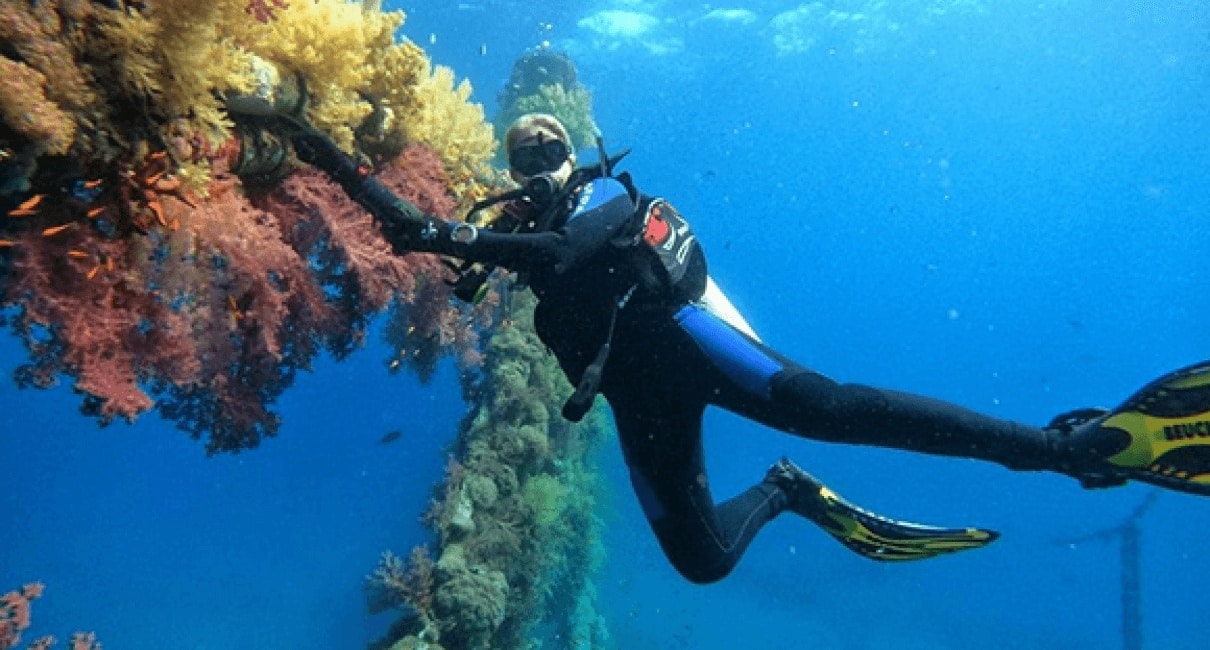The harmful chemicals can be found in a wide variety of consumer products such as food packaging, toys, medical devices, adhesives and more

A new study by Tel Aviv University and the Interuniversity Institute of Marine Sciences in Eilat examined the effect of plastic additives on the reproductive process and development of coral juveniles and common animals in the coral reef in Eilat. The plastic additives are chemicals that are added to plastic products, already in the production stages, and many of them are known to be hormonal disruptors. The research shows that the chemicals pollute the sea and may damage the population structure and biodiversity in the coral reef.
The research was conducted under the leadership of researchers Gal Vared from the Interuniversity Institute for Marine Sciences in Eilat and Tel Aviv University and Prof. Noa Shankar from the School of Zoology in the Faculty of Life Sciences and the Steinhardt Museum of Nature at Tel Aviv University. The study was published in the prestigious journal Environmental Pollution.
As part of the study, the researchers focused on four types of organisms: stone coral, soft coral, fire coral and itzelani. These organisms play an important role in the ecology of tropical coral reefs, and damage to their reproduction and development may affect the structure of the reef society.
In addition, the researchers examined four chemical additives that are widely used in plastic products and were found in seawater in tropical areas that inhabit coral reefs: two chemicals of the phthalate type, which are used to soften and increase the flexibility of different types of plastic and can be found in a wide variety of consumer products such as food packaging, toys, medical devices, Adhesives and more. In addition, we will examine a chemical from the group of nonylphenols that is used as a stabilizer in plastic packaging and as an additive in cleaning agents, as well as the substance bisphenol A, which is common in polycarbonate plastic and is used for food and beverage packaging, baby bottles, boxes, and more. The European Chemicals Association has classified bisphenol A as a substance that may cause damage to human fertility based on evidence in laboratory animals.
Chronicle of pollution: from the factory to the consumer to the sea
Gal Vared explains: "Plastic additives are chemical additives that are incorporated into plastic products during the production process. These substances reach marine environments through plastic waste and sewage, some of them are known to activate or suppress hormonal processes and thus can disrupt biological systems. However, their effects on coral reef organisms have been largely unstudied in the past. The population structure in the coral reef depends on the success of reproduction, development and settlement of the coral and the animals that make it up. Disruption to hormonal systems may affect the chances of success of these processes, and an uneven effect on different species may lead to a change in the structure of society and damage to the entire system."
The researchers conducted a series of exposure experiments in which the effects of the plastic additives were tested at an environmental concentration for seawater, and at a higher laboratory concentration. The parameters measured were fertilization, juvenile development (degree of juvenile development), juvenile survival, and juvenile settlement and its transformation into a resident individual.
The environmental concentration of nonylphenol was found to inhibit the settlement of the juveniles of the studied soft coral, and the same substance, at a high concentration, damaged the fertilization, development and settlement of all the animals examined. In addition, one of the chemicals of the phthalate type in high concentration, only damaged the success of the settlement of the preemies of the stone coral being tested and not the other animals. This finding reinforces other studies in the field that show that plastic pollution selectively affects animals of different species.
Prof. Shanker: "Our findings demonstrate the negative and selective effects of plastic additives on the development and reproduction of organisms that inhabit coral reefs; The environmentally relevant concentrations used in our experiments were based on reported levels in seawater. However, these measurements do not reflect the concentrations present within the tissues and systems of the living organism. In order to better understand the impact of these pollutants on an ecosystem that is under constant threat, we suggest testing the actual concentrations within the tissues of the organisms, in order to produce relevant risk assessments for coral species that incubate the juveniles within their tissue."
Wise consumerism and proper waste management
Gal Vared: "Coral reefs have to face many threats, such as the increase in ocean temperatures, increase in ocean acidity, light pollution and enrichment of nutrients. Most of the world's coral reefs are found in developing countries, where the human population is expanding rapidly and where waste and sewage are poorly managed. Actions to eradicate plastic waste from the environment include proper waste management that includes local solutions and a reduction in the transportation of waste from one place to another, and a choice of each and every one of us in wise and proportionate consumption of reusable products that are produced under the control of chemical additives."
"We emphasize the importance of proper waste management that will reduce the arrival of these substances in the marine environment, and the need for methods to measure the concentration of chemicals inside the bodies of animals in order to assess the possible risk to reproductive and developmental processes," the researchers conclude.
More of the topic in Hayadan:
- The corals are crying out - we must take the pressure off the Red Sea
- Researchers at the Technion have developed packaging based on nanotechnology that will extend the shelf life of bakery products
- The microplastic increases 10 times the toxicity of organic pollutants in the environment
- What is holding back the fight against plastic pollution in the sea?
